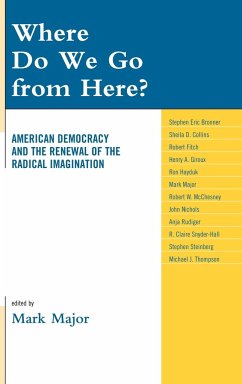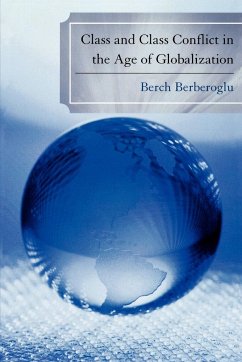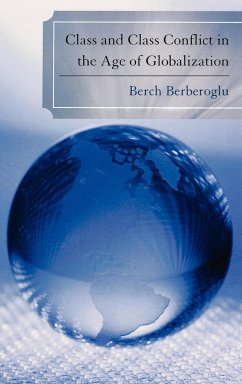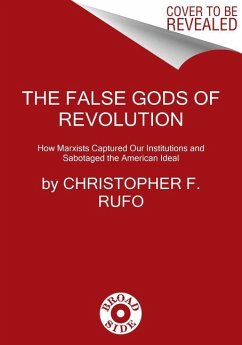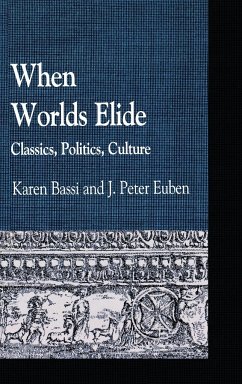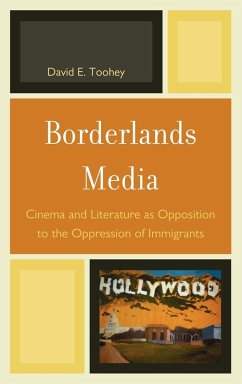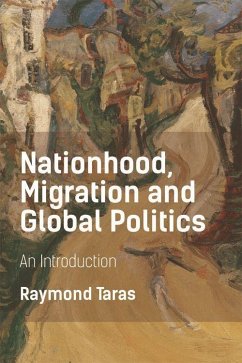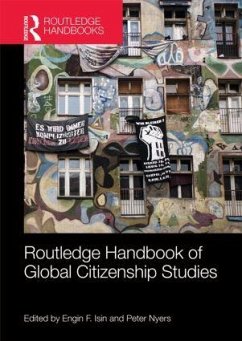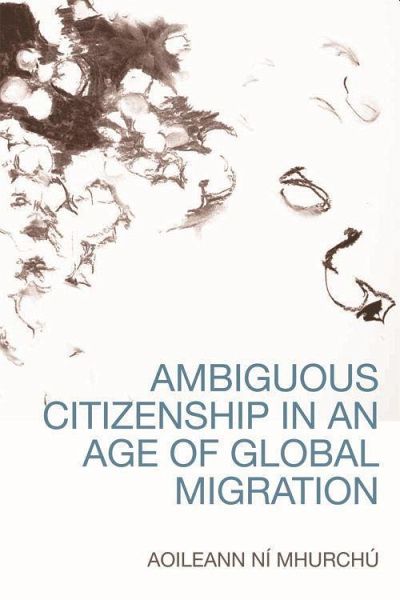
Ambiguous Citizenship in an Age of Global Migration

PAYBACK Punkte
70 °P sammeln!
'Few studies rethink citizenship with the creativity, imagination, and nuance of this book. Aoileann Ní Mhurchú investigates the politics of citizenship in relation to the struggles of intergenerational migrants, and reveals the value of seemingly fragile, impermanent, and transient forms of political subjectivity. Highly recommended.' Peter Nyers, McMaster University This book builds on the challenges posed by recent critical analyses of citizenship. It shows not only that many contemporary forms of citizenship exceed national and territorial boundaries but, more significantly, resist the c...
'Few studies rethink citizenship with the creativity, imagination, and nuance of this book. Aoileann Ní Mhurchú investigates the politics of citizenship in relation to the struggles of intergenerational migrants, and reveals the value of seemingly fragile, impermanent, and transient forms of political subjectivity. Highly recommended.' Peter Nyers, McMaster University This book builds on the challenges posed by recent critical analyses of citizenship. It shows not only that many contemporary forms of citizenship exceed national and territorial boundaries but, more significantly, resist the conventional opposition between claims to particular citizenships and claims to a common humanity. It does so by treating citizenship as both process and experience, especially in relation to intergenerational migration. It is a compelling and provocative intervention.' R. B. J. Walker, University of Victoria, Canada, and PUC-Rio de Janeiro, Brazil Presents a distinctive theoretical approach to the question of citizenship Citizenship is widely understood in binary statist terms: inclusion/exclusion, past/present, particularism/universalism, with the emphasis on how globalisation brings such binaries into sharp focus and exacerbates them. This book highlights the limitations of these positions and of current debate, and explores the possibility that citizenship is being reconfigured in contemporary political life beyond binary stateoriented categories. Aoileann Ní Mhurchú uses critical resources found in poststructural, psychoanalytic and postcolonial thought to think in new ways about citizenship in a globalised world, drawing on a range of thinkers including Kristeva, Bhabha and Foucault. She highlights the necessity of a more sophisticated understanding of citizenship which takes into account how some people get caught between state sovereign categories. And she provides a robust, theoretical discussion about how citizenship increasingly involves overlapping, inconsistent traces of us and them, inclusion and exclusion, particularism and universalism which confound easy categorisation. In this way, Ambiguous Citizenship in an Age of Global Migration contributes to the growing and dynamic interdisciplinary field of critical citizenship studies (CCS), which explores new forms of citizenship in a globalising world. Aoileann Ní Mhurchú is Lecturer in International Politics at the University of Manchester. Her research is located at the intersection of three areas: critical citizenship studies, international migration, and contemporary political and philosophical thought. This is her first book. Cover image: (c) Priya Chohan. Cover design: www.richardbudddesign.co.uk




